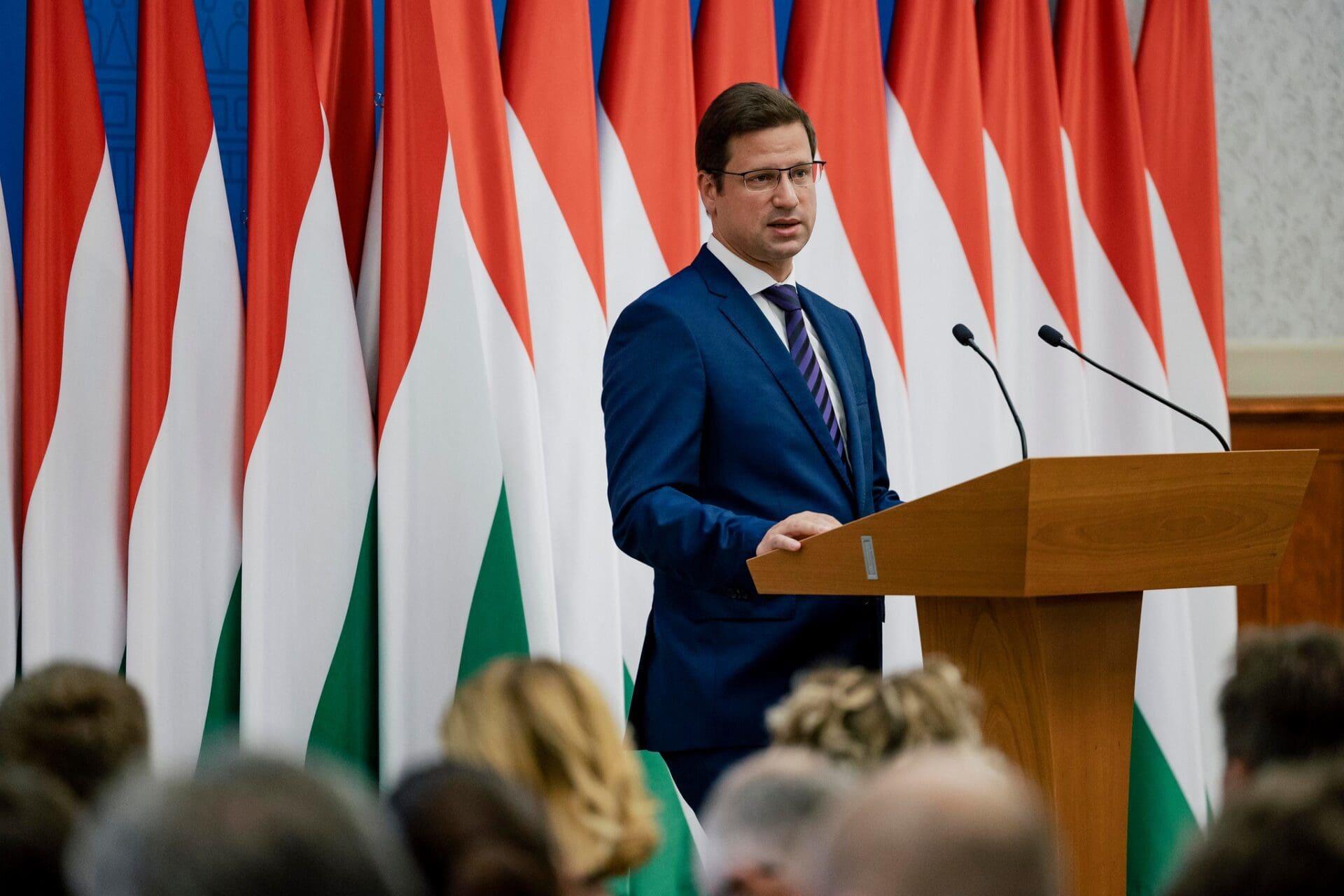The last of the government press briefs known as ‘Kormányinfo’ was held over two weeks ago, on 23 August. These briefings usually take place after cabinet meetings, with minister of the Prime Minister’s Office, Gergely Gulyás and government spokesperson Alexandra Szentkirályi providing information about the topics that were discussed, the decisions the government made, while also answering questions from the press.
New Government Measures Announced
Today Mr. Gulyás started off by detailing the government’s immediate plans regarding energy consumption, in the shadow of the crisis in Europe. He said the government reviewed the current state of affairs in terms of energy supply and the economy. He reiterated that Europe as a whole is in a difficult situation, and facing an economic crisis. The government is of the opinion that the sanctions on Russia did not provide the results that were expected; thus, Hungary is going to face gas shortages in the coming months. The minister said that in order to maintain energy security in the country, consumption needs to be reduced. Therefore, the government is instructing all government institutions and state-run enterprises to cut back on their gas consumption by at least 25 per cent, and heat their buildings to a maximum of 18 degrees. Hospitals and residential social welfare residential care institutions are exempt from this ruling. The minister stressed that these measures do not apply to households, and long-distance heating prices will remain unchanged.
To help households, the government has also decided to subsidise the purchase of firewood and coal. Mr. Gulyás explained that as of next week, firewood will be purchasable directly from forestries at a capped price. He continued by adding that everyone should be able to buy at least 10 cubic metres of firewood from forestries, which should be enough for the winter. Regarding coal, the government is looking into ways to increase domestic production.
Funding Issues
He said that the government has reached an agreement with the EU on almost all issues of concern that have prevented the disbursement of EU funds to Hungary. Minister of justice Judit Varga is continuing her talks in Brussels, and minister in charge of EU funds Tibor Navracsics is also meeting with EU officials. Mr. Gulyás also called on the Hungarian left to stop trying to undermine the country, noting that politicians on the left are doing everything in their power to stop Hungary from receiving funds from the EU, and thus are are preventing the government from raising the salaries of educators.
He added that regarding the set prices on foodstuffs, the government will decide whether they need to be upheld in the coming weeks. The regulation on capped prices would otherwise expire at the start of October.
The government still aims to keep schools and kindergartens open, as should they be closed down, parents would not be able to work, which would damage the economy even further. Mr. Gulyás added that the government is conducting talks with local governments concerning their financing, however, the government is of the opinion that local governments should be able to find the necessary reserves in their budgets to cover the additional expenses caused by the energy crisis. He added that the government is not going to intervene unless there is no heating in households because of a company going bankrupt. When asked whether local governments are going to be able to take out special loans, he said talks are still ongoing on the matter.
‘Our gas reserves are looking good,’ the minister confirmed. Taking into account the current consumption of the industry and households, Hungarian gas reserves hold enough gas to provide heating for at least 81 days in the winter. ‘In terms of residential consumption alone, we have a lot more days,’ he added. He also said that by implementing the 25 per cent reduction of gas consumption in government institutions the country will save about 200 million cubic metres of gas. He said he expects that overall gas consumption will decrease, with industrial actors definitely cutting back on energy use, and most likely households as well, which is the right way forward according to the government.
Sanctions Don’t Work
‘If the sanctions were lifted now, inflation would immediately be halved,’ the minister said. With countries in Europe struggling economically and people becoming unable to buy groceries, the only solution is to lift the sanctions, he insisted. He added that the Hungarian government is of the opinion that Europe ‘responded badly to the aggression’.
Alexandra Szentkirályi reminded that the Hungarian government had predicted that sanctions would not end well, as they would hurt Europe more than they would hurt Russia.






